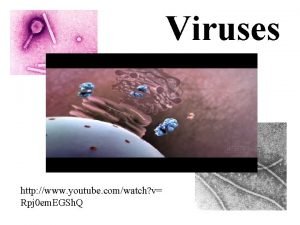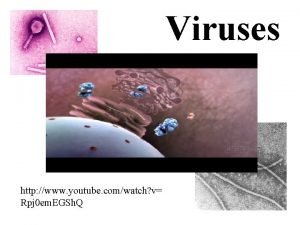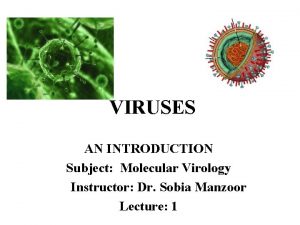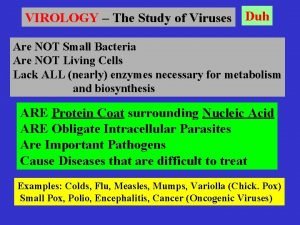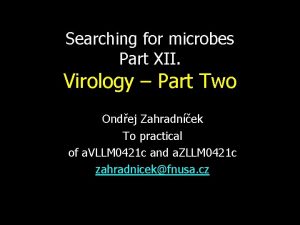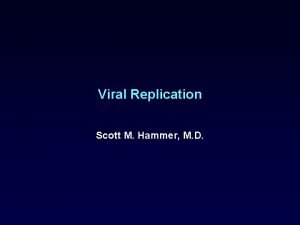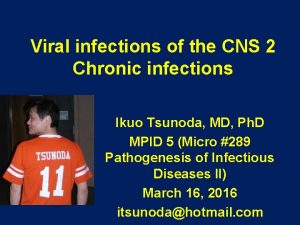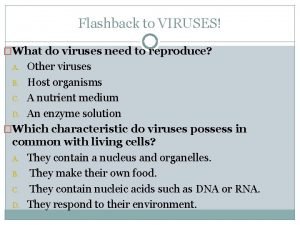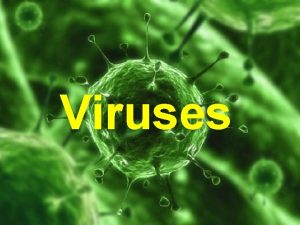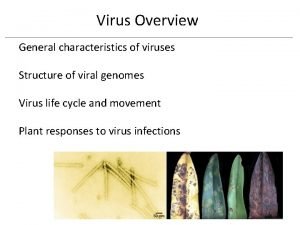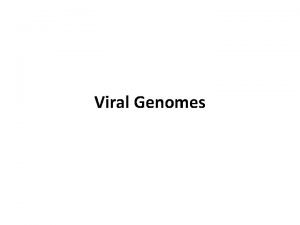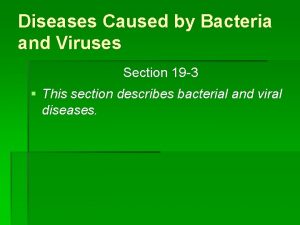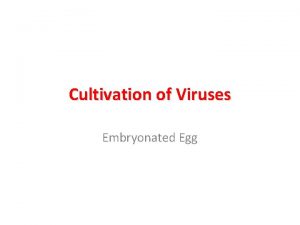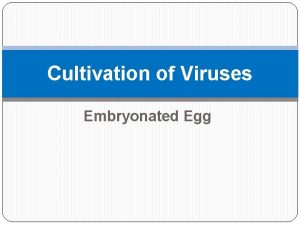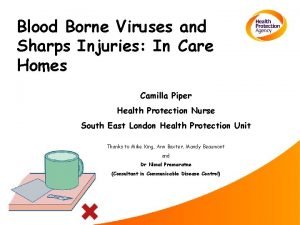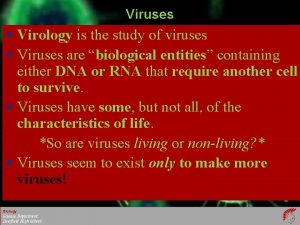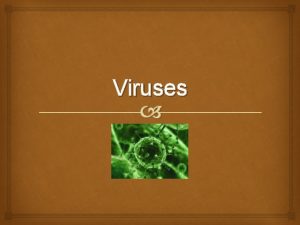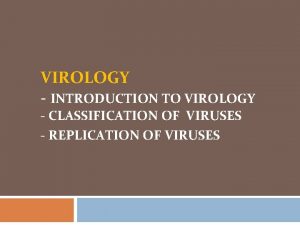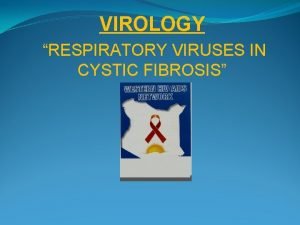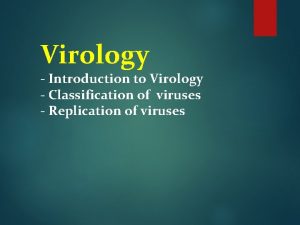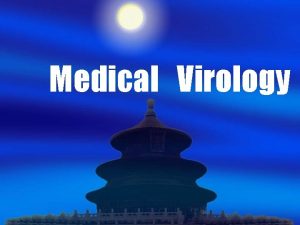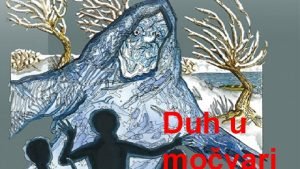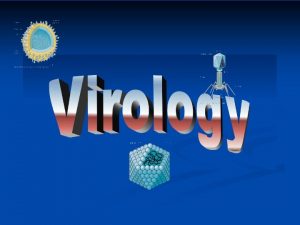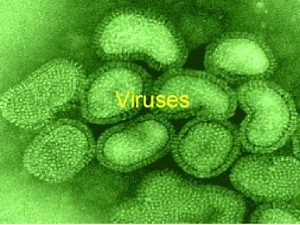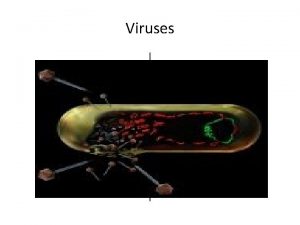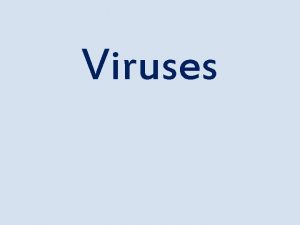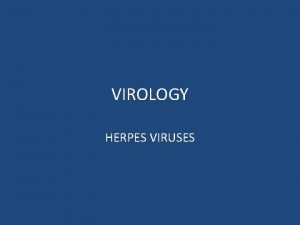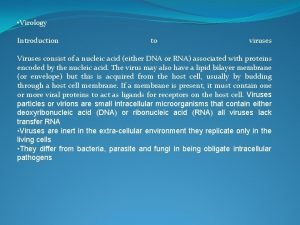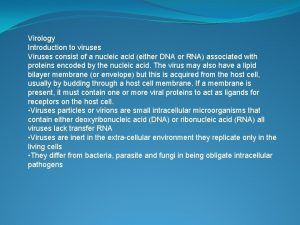VIROLOGY The Study of Viruses Duh Are NOT





















- Slides: 21

VIROLOGY – The Study of Viruses Duh Are NOT Small Bacteria Are NOT Living Cells Lack ALL (nearly) enzymes necessary for metabolism and biosynthesis ARE Protein Coat surrounding Nucleic Acid ARE Obligate Intracellular Parasites Are Important Pathogens Cause Diseases that are difficult to treat Examples: Colds, Flu, Measles, Mumps, Variolla (Chick. Pox) Small Pox, Polio, Encephalitis, Cancer (Oncogenic Viruses)

A Little History Pasteur – Treated Rabies Jenner - Treated Small Pox Vaccines – Prevention, NOT CURE 1949 – Culture Polio Virus in Tissue Culture Animal Viruses grow in Animal Cells 1950 – Electron Microscope Invented Needed to SEE Viruses Still Discovering Viruses



Oral Polio vaccine Distribution 1962

General Concepts Size – 20 – 300 nannometers (0. 02 -. 3 um) Contain: “Core” of Nucleic Acid (either DNA - 1 or 2 stranded) (or RNA – 1 or 2 stranded) Protein Coat surrounds Core Must use Host Cell Metabolic Machinery to Replicate and Produce More Viral Particles ARE OBLIGATE INTRACELLUAR PARASITES





Viral Classification Original (and still) by disease they cause International Committee on the Taxonomy of Viruses 1. Nucleic acid type )DNA/RNA 2. Replication type 3. Morphology Other Capsid symmetry icosahedral, helical, complex Enveloped or not + or Ether Sensitivity + or -

Lytic Cycle of Bacteriophage

Lytic Cycle of Bacteriophage

One Step Viral “Growth” Curve

Lysogenic Cycle of Bacteriophage


Retroviridae HIV-1 Reverse Transcriptase RNA-Dependent DNA- Polymerase Provirus

Cultivation of Viruses 1. In Living Animals or Bacteria 2. In Embryonated Chick eggs 3. In Tissue Culture – Primary Permanent - He. La Cells

Viral Effects 1 Lysis of Cells and Death Polio Virus 2 Form Inclusion Bodies - Rabies Negri Bodies - clumped viral parts 3 Alter Cells a. Cells Proliferate – Poxviridae b. Fuse Cell Membranes – Herpes, Measles (Giant Cells) c. Persistent Infections Viral Latency – Herpes simplex, cold sores, Chicken Pox Chronic – Hepatitus B shed virus but not have disease Slow Viral Infection – SSPE 4 Transformation – Normal to Malignant Cell a. DS-DNA – Papoviridae (cervical), Herpesviridae (EB) (nasop) b. SS-RNA – Retroviridae HTLV (leukemia), Rous Sarcoma Virus src gene – mammary tumors in animals (? humans)

Viral Congenital Effect Vertical Transmission Rubella – teratogenic (by slowed growth rate) rubella syndrome – birth defects if in 1 st trimester HIV vertical transmission Cell Responses Antibody Formation Interferon Production – Protein released at infection site Protects adjacent cells

Prions – Infectious Protein Kuru – Fore People of New Guinea – cannibals Scrapie in sheep – proposed protein disease Spongiform Encephelopathy Creutzfeldt-Jacob Disease (CJD) Mad Cow Disease (BSE) – origin? , pass to Humans
 Duh duh duh man
Duh duh duh man Lytic cycle animation
Lytic cycle animation Youtube
Youtube Insidan region jh
Insidan region jh Introduction to medical virology
Introduction to medical virology Growth curve of virus
Growth curve of virus Estrutura do virus
Estrutura do virus Fields virology
Fields virology Fields virology
Fields virology Lysogenic viruses do not
Lysogenic viruses do not Sadlier vocabulary workshop level d unit 1
Sadlier vocabulary workshop level d unit 1 Why are viruses considered nonliving?
Why are viruses considered nonliving? Bacteriophage characteristics
Bacteriophage characteristics General characteristics of viruses
General characteristics of viruses Viruses
Viruses Section 19-3 diseases caused by bacteria and viruses
Section 19-3 diseases caused by bacteria and viruses Cultivation of viruses
Cultivation of viruses Egg inoculation diagram
Egg inoculation diagram Egrette chapter 21
Egrette chapter 21 Chapter 20 viruses and prokaryotes
Chapter 20 viruses and prokaryotes Blood borne viruses
Blood borne viruses Chapter 7 lesson 1 what are bacteria answer key
Chapter 7 lesson 1 what are bacteria answer key

